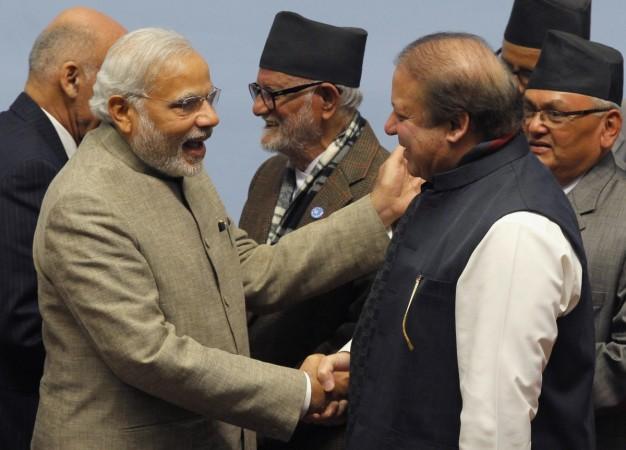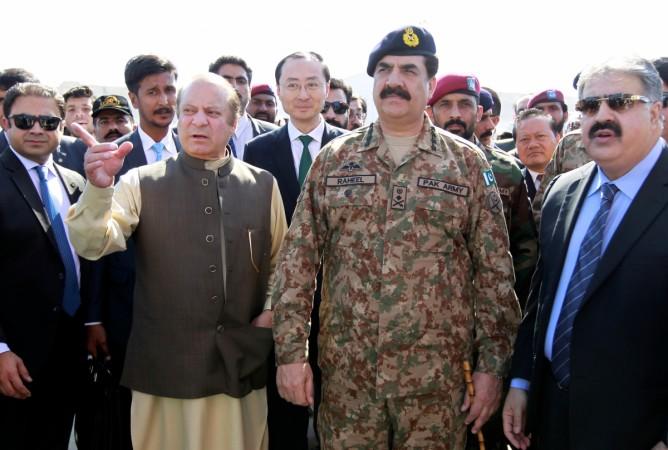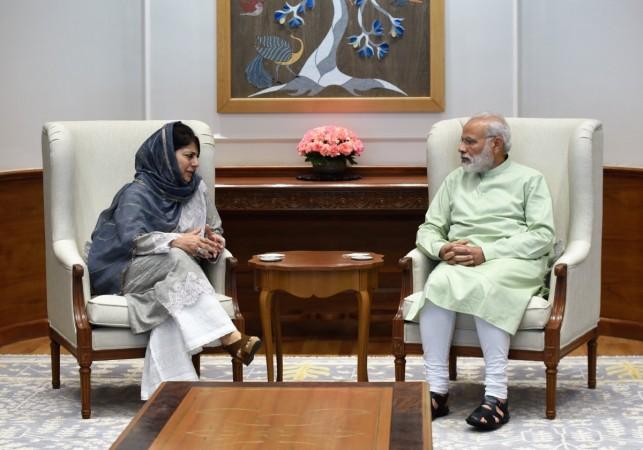
Yesterday, a retired brigadier of the Indian Army was seen remarking on a news channel: "Pakistan is such a small country. How dare it tries to mess up with us? Have they forgotten 1947, 1965, 1971 and 1999?" Another former top official of the Border Security Force who was also present on the occasion, refused to agree that India should also deploy a counter-Fidayeen group to give Pakistan a taste of its own medicine. "We are a civilised country, not a barbaric one like Pakistan. Our civilised forces are enough to teach them a lesson," he said.
The gentlemen's anger was understandable after reports about two Indian jawans' bodies getting mutilated by the Pakistani Army personnel made headlines across India. But at the same time, hearing two former representatives of the Indian armed forces making such childish statements on the scenario raises a question on India's own stand.
Also read: Why Uddhav Thackeray's call for tearing Pakistan into pieces is dangerous for India
To put it straight: India has literally very limited options to deal with Pakistan even after the relentless provocation. No matter how many clickbait headlines the country's desperate-for-commercial-success media houses come up with [like "Pak mutilates jawans' bodies: Here what can India do"], the reality is New Delhi can hope for little success against that state, which seems to be heading towards an internal turmoil, thanks to the growing adversity of its prime minister – Nawaz Sharif.
The statements like "Pakistan is a small country; how dare it?" or "Have they forgotten 1947, 1965,...?" have little relevance today and it is none but India which is responsible for making them irrelevant. The wars of 1947, 1965 and 1971 were won because India had a military lead over Pakistan in the pre-nuclear days. Had it been today, even Indira Gandhi would have thought twice before declaring a war on Pakistan. The 1999 clashes in Kargil happened post-nuclearisation but it was more of an non-international armed conflict than a war.

Being a smaller country with a lesser army, it was always a foregone conclusion that Islamabad would have never aspired to win a war against New Delhi. But 1998 was the turning year. Pakistan became a nuclear power soon after the then Atal Behari Vajpayee government conducted Pokhran II and that was about it. Factors like size and conventional military power were neutralised and so was India's advantage.
The year 1998 saw India's lead over Pakistan vanishing for ever
For those who are yelling at the top of their voices on how can a "rogue state" like Pakistan can succeed in making India bleed, they should a spare an analytical thought: Did the NDA government did it right to go for nuclear armament in 1998 and give up the traditional advantage? If logic is given a chance to prevail – shouldn't Pakistan have assessed its own security after India went for the tests, just like India would have felt relieved after it entered the nuclear club a decade after China – its other hostile neighbour?
Give logic a chance before 'attacking' Pakistan
The Indian media has found a pet project in bashing Pakistan without giving logic a chance and the current rulers, who thrive on nationalist sentiments, are loving it. The media's business has found a swift alignment with the political class's ploy of keeping the public glare deviated from crucial issues. The soldiers' hurt sentiments are also being cashed on and the top of it, many channels are seen hiring equally abrasive voices from Pakistan to fuel the fire of sensationalism in the studio. The end result of all this is virtually zero. None is gaining anything but a lot of people are losing the meaning of their lives.

It is utterly disappointing that the under-qualified media and the like-minded jingoists are setting the agenda in a very sensitive issue like the India-Pakistan problem. Serious analysts of the problem are not being given any chance while fools are being allowed to form the public opinion. But these pseudo experts must know that India-Pakistan crisis is not a thrilling cricket match or an entertaining climax of a film. The hot claims of retaliation can take things out of control in no time.
Just like we need to prepare ourselves to deal with a bad neighbour, the onus is on New Delhi to chart out its strategy vis-a-vis Islamabad. It is much easier said than done and people with both knowledge and goodwill are required to do the job successfully. Options like surgical strikes, shutting down trade or expelling diplomats serve little purpose because Pakistan's policy-makers on India care little for any institutional norm. It's just 'Bleed India'.
What India can do: Not for those who are looking for shortcuts
So what can India do precisely? First and foremost, we need to get rid of the 'political'. The Congress is now taunting the BJP saying more soldiers were killed under the regime of Narendra Modi than his predecessor Manmohan Singh.
The same was done by the BJP when it was in the Opposition. This is self-harming. The problems in Kashmir and with Pakistan are well above petty party politics and the political class needs to understand that. Deliberations across the political spectrum are required urgently to come up to sound conclusions on a robust Pakistan policy. At the moment, it is not happening.
Modi had done the right thing in inviting Sharif to his oath-taking ceremony in 2014 or suddenly landing in Lahore to meet his Pakistani counterpart in end 2015. The terror attacks of early 2016 showed that India and Pakistan were doing it perfectly right. The Congress, on the other hand, never allowed Singh to visit Pakistan during his decade-long stay in office even though he personally wanted it. It was a utter policy failure of the then UPA government.

Secondly, India needs to go all-out to douse the raging fire in Kashmir. As long as that is not happening, Pakistan's aggression will continue. PM Modi must ensure that Kashmir's heart is won through inclusive politics and for that, army is not a solution. Here again, all heads need to come together to find ways out. Jingoist calls or just fat packages will not reach us anywhere.
On the question of involvement of external powers, India has already diluted its position on Kashmir by internationalising it in 1947. Today, New Delhi says time and again that it doesn't want any third party in this problem but Pakistan has already got the advantage of India's error made 70 years ago.
A number of countries besides the US have expressed an eagerness to resolve the eternal problem and India has denied them access. But even though it is saying it is a bilateral issue, can India aspire to make any headway if its relation with Pakistan never improves? So, if Kashmir has to be made a decisive bilateral issue, then India needs to revive talks with Pakistan and can't afford to boycott it and escalate the situation at the borders.
The fourth aspect could be to tighten the defence beyond penetration. It is true that manning the difficult terrains is not an easy thing to do in Kashmir, but technological steps can always be initiated to better the situation. If Israel can devise the iron dome to reduce casualties on its side of the border, why can't we do something similar to save our soldiers? Too many human lives are being wasted at the borders and neither the BJP nor the Congress has taken an initiative to minimise deaths of jawans. Rather, we are busy cashing in on their gruesome deaths.
It will only be living in the fool's paradise to not to accept the fact that India is at a disadvantage vis-a-vis Pakistan now.
The more Pak's elected leaders face challenges, the worse it is for India
New Delhi's problems have been made worse by the fact that PM Sharif is facing new challenges in his own country [Panama Papers, his meeting with Sajjan Jindal, etc. etc.] and the more his position is weakened and with that, the fledgling democracy in Pakistan, the harder will be the Modi government's task to protect its own men and interests. We have seen how an unstable Afghanistan neighbouring Pakistan has been hurting the latter. Similarly, a collapse in Islamabad could see India facing serious threats on its western border.
India's interests will be best served only if Pakistan remains healthy and stable. Ironical it sounds but that's the reality. Disconnecting links with that country seem the apparent way out but that would be to play into the hands of the disruptive non-state actors and allow tension rule the borders. Sense lies in reviving talks with Pakistan and back its civilian authorities.

















